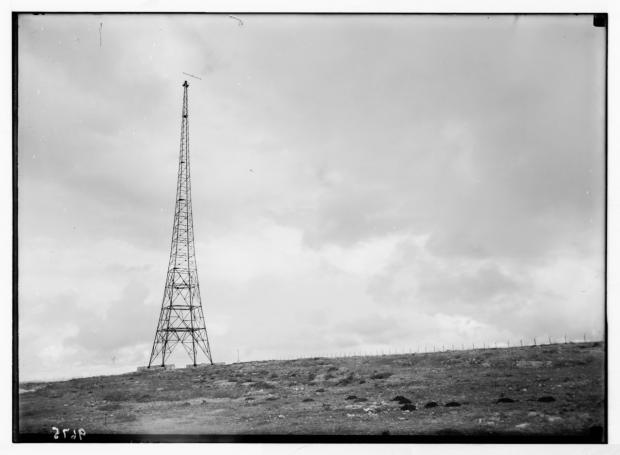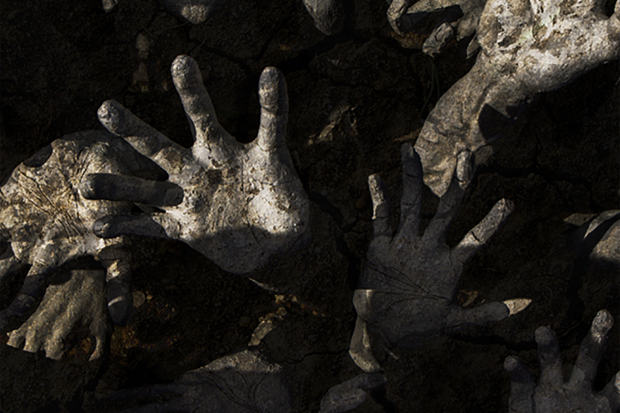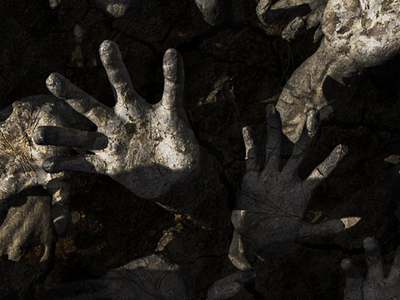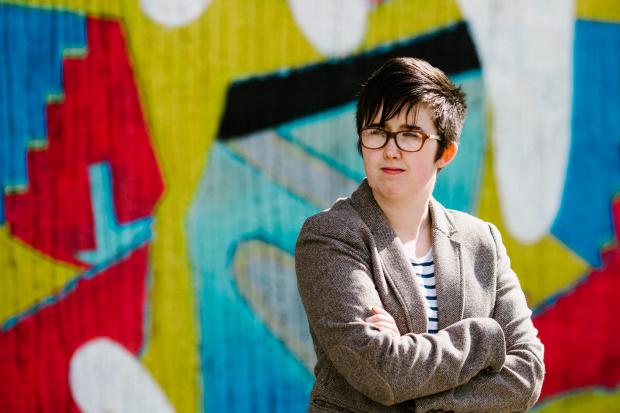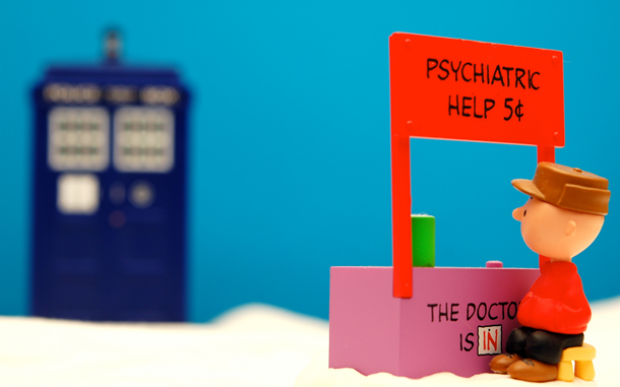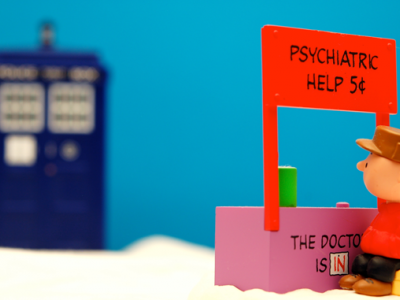Alone in New York
Maybe I would have felt more prepared for this if I had watched Contagion. But I’ve never been one for disaster movies and when faced with warnings of the coronavirus pandemic striking the US at the start of March, that particular film was not part of my plans for preparation — unlike the many others who helped bring on its resurgence. Instead, I obsessively washed my hands and attempted to keep calm.
I couldn’t even imagine being where we are now — just a few weeks ago I was rolling my eyes at those panic buying hand sanitiser and toilet paper, and the great mask debate.
Now the death toll climbs every day, New York City is totally shut down, and it’s normal to see people walking around wearing masks and gloves. None of the early reassurances have stuck: the pandemic has sent far more young people to the hospital than expected, we apparently should be wearing face masks because the virus can be spread through the air, this is far more deadly than the seasonal flu, and animals apparently can get it too. Nothing is certain, and it’s paralysing.
It took an Italian doctor’s sobering warning to the US to make me fully realise what was to come. She painted a harrowing scene of doctors having to make choices between patients and now those are exactly the choices our hospitals are preparing for.
Soon after hearing that, I was struck with a stabbing, constant chest pain that lasted for a week. At its worst, it made breathing and moving difficult.
When the pain became so heavy that it was dizzying, I caved and called my doctor again.
She said it was most likely the product of my generalised anxiety disorder, rather than coronavirus — although at this point, who really knows.
The pain eventually tapered off into a quiet throb that seems to be yet another feature of the new normal.
Like many others I’ve been hard-wired to believe that being employed will save me
That slow realisation that life in quarantine would not last a week, but months, maybe even longer, brought back a feeling I thought I conquered.
My anxiety is at its worst when uncertainty looms. When I was a kid it was being afraid of the ocean because of how vast it is; as an adult, it manifests itself in worrying about whether I’ll ever actually pay off my student debt.
My chest pain was coupled with a cough, aches and fatigue — enough for the doctor to tell me over video chat to immediately self-isolate.
After most of my symptoms passed, I threw myself into work. Work makes time pass with ease, but working from home means that I have trouble stopping. Coronavirus consumes both my working and non-working hours, and part of that is me attempting to believe that, through journalism, when there’s so much misinformation about this virus, my job matters. I ignore my body in order to be “useful,” because like many others I’ve been hard-wired to believe that being employed will save me.
I know that I am fine and I will be fine, but that doesn’t seem to stop a stream of anxiety, and frankly I feel guilty for it. I’m lucky enough to have a job I can do from home, and that I still even have one — especially when US unemployment claims have reached record highs.
I have thought a lot about when I’ll see my friends and family next. It took a lot of pleading to get my father to stop driving for Uber, but I’m worried he’s going to be a little too liberal about quarantine anyway. I wonder when I’ll actually get to hug my friends again, or if this is going to permanently change how we greet one another. I wonder how much protection I should wear outside, or if I should even be leaving home at all.
I’ve realised that I don’t particularly enjoy cooking just for myself. I love cooking, but cooking and eating with people I care about.
My guilt over living far away from my parents and relatives has resurfaced, I feel bad for not wanting to be stuck in my childhood home for months on end. The lowest point of self-isolation transformed me into the irritable, lonely girl I was as a teen — I found myself blasting Bright Eyes.
I miss my parents and the worry over possibly losing them is the sort that cramps my stomach and makes me lose sleep. I hear stories about families having to say good-bye over walkie-talkies or through iPads, and I don’t want that to be anyone’s story, but especially not mine.
Working out the worst case scenario is usually the antidote to my anxiety, and quite possibly the reason why I, like many others who manage severe anxiety, am strangely at my best in a crisis.
I find comfort in planning for the worst outcome, but this pandemic, which holds so many unknowns, makes it impossible to feel prepared. Facing my anxiety also usually means realising that the worst scenario I’ve imagined is far-fetched and unrealistic, but the lack of certainty makes it difficult to know that.
What comes next for us in the US is a disaster movie that hasn’t been written yet, but already it is laying bare many of the failures and sheer cruelty of our systems, and I’m terrified of the version of the coronavirus tragedy that will play out here.
The story changes every minute — new rules, new death tolls, new cases, louder pleas from doctors — and it’s brought back a feeling of paralysis, my heart thumping violently even when I’ve decided to tear myself away from the news.
Under normal circumstances, seeing loved ones, or a walk, or being able to just go somewhere else helps me come out from under the weight of my anxiety.
But that’s not an option under quarantine. There’s a tiny cruelty in how fighting this virus means walling yourself off from everything (and everyone) around you. Early on, a friend darkly joked that the virus was a fascist’s dream, difficult to mobilise against, and shutting borders.
Being stuck at home — and unable to sense when this will pass — makes me feel trapped. It’s difficult to reassure worried friends, or my mother whose heart is broken from being unable to see my disabled younger brothers, who live in a facility that has barred visitors.
I am lucky to even have a home at a time like this, but waiting out this crisis in New York means restricting your movement to the confines of a most-likely small apartment, possibly in a building with many others who could pass the virus onto you anyway.
In a country where sickness comes at a cost, we don’t really have a culture of knowing when to stop
This pandemic has made the consequences of small actions visible in a horrifying way, triggering a wave of obsessive thoughts: Was it selfish to consider riding out this crisis with my parents back in North Carolina? Should I do laundry in my building if someone else is there already? If the sidewalks are crowded, should I just stay home? Would taking a walk longer than the brief circle of my block the doctor recommended lead to consequences for someone else? In a city as crammed as New York, it always seemed unlikely that my smallest habits came without impacting anyone else, but now that I have to really think about it, it’s firing up another level of panic.
Living in close quarters with millions of people has always been an act of faith — our behavior and choices has always impacted those around us.
In a country where being sick comes at a cost, we don’t really have a culture of knowing when to stop. How many of us can actually tell when we’re not feeling well? How many of us, with the start of a cold or flu, have gone into the office anyways? Every nasty bug starts somewhere. I started my working life at smaller organisations in London, and once I moved back to the US, it was a shock to see the strange sense of valour associated with working through an illness, missing lunch or working too much.
The working world hard-wires us to believe that every moment should “count”, and that we should love every minute of it, even if that means ignoring our bodies. I fear we will pay the price for that.
The impulse to find a silver lining is part of the problem
Initially, when I thought of a prolonged time at home, I told myself that the silver-lining would be productivity. But my writing projects are still languishing, the shelves I bought several months ago are still waiting to be mounted. The global cities I’ve lived in have brought out in me a heightened fear of wasted time, and for most of the last decade I’ve felt that I need to always be doing something.
If I was staying at home, rather than enjoying the city, there had to be a justification for it, I had to cross something off of my checklist.
Early on, I heard people say that the world coming to a stand still, is at least good for climate change, (even when there are doubts about that). It’s natural to want some kind of payoff for the way this has shut life down, and maybe that’s why many people eagerly shared false stories about dolphins making their way into Venice’s canals, or flooded their social media feeds with memes about Shakespeare supposedly using the plague to write King Lear.
Perhaps the impulse to find a silver lining is part of the problem. Maybe we have to accept that this is just going to be a tragedy, and going into quarantine is the only thing we can do to control it.
Before I was told to self-isolate, I really wanted to be helpful to those who would be hit hardest by this crisis, and it was hard to accept that staying home was the best I could do.
I quickly began turning my energy to finding a sense of preparedness. I had a debate with myself about what is “essential” and what isn’t — the whole culture and business of “self-care” has blurred those lines. Just a few weeks ago, I might have considered a scented candle important for preserving my sanity. But really is it worth endangering someone for the delivery?
As we figure out which purchases are ethical, there’s an aspect of going so far inward that makes me not like myself very much. My escape is scrolling through my Instagram feed a little too much, flying into tiny rages over people who have decided to crowd public spaces anyway, coronavirus be damned.
Social media makes it seem like we’re all hunkered down in the same place, even though a person in a market thousands of miles away has no impact on me (right now). Alexa Chung and Martha Stewart, the only two celebrities I follow on Instagram, have the same, cabin-fever induced social media presence as the people I know in real life.
My iPhone warns me that my screen time has shot up — partially because I’m seeing even more of my friends through video chats, but also because I’m spending too much time on social media, a habit I know worsens my anxiety and depression.
It’s too early to tell what the coming months will bring, but it’s pretty certain that we will not be living in the same world by the end of it, and some aspects of that are absolutely terrifying, especially the loss of life and destructions of livelihood we’re already seeing. Hating being on my own, missing my parents, friends, and being outside are practically frivolous anxieties in comparison.
None of us know when this will pass or how much worse it will get. I hope our collective fear and anxiety will translate into a transformative anger, but it’s hard to imagine anything fundamental changing, especially when this pandemic is already exacerbating US inequality, and at a time when we’re so polarised that we can’t all objectively see that our leadership seriously fumbled this crisis, despite more than enough warning.
The most we can do is try to get through it by being kind to ourselves and the people around us. Maybe that’s the best we’ve got.

